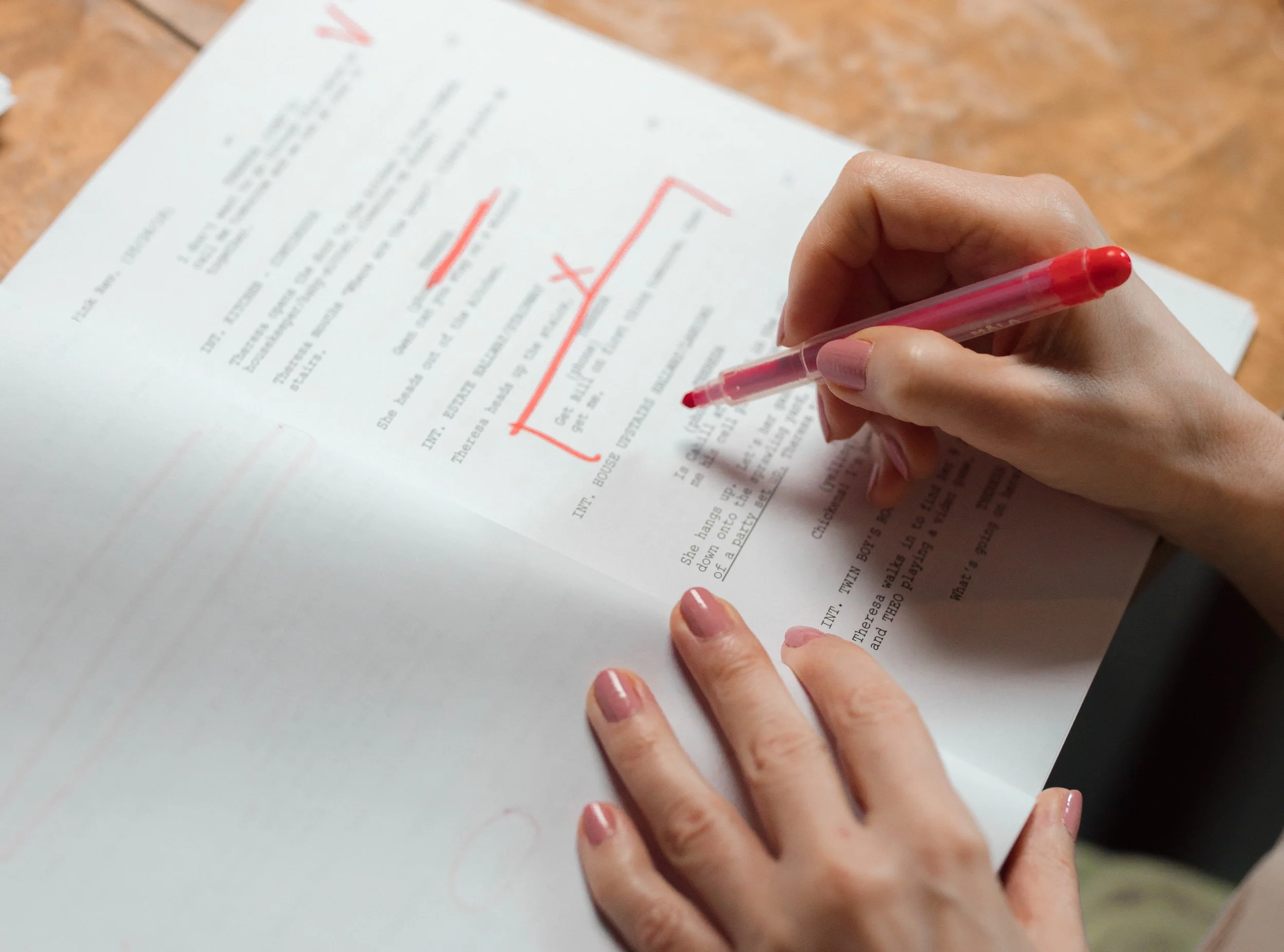Your Writing Weaknesses are Your Secret to Success
Photo by Ron Lach for Pexels.
The other day, my 9-year-old son shuffled around the soccer field with his head down, his left hand in his pocket, and an I-don’t-give-a-shit attitude all over his face. I didn’t know if he was bored or hungry or what, and I’m far from a tiger mom, but I wasn’t going to let that embarrassing behavior continue. When the team took a water break, I asked him what was going on and how he could be so disrespectful to his coach and the other players.
In the voice of a much younger child, he said, “I’m so bad at this. I couldn’t even kick it into the goal.”
After a quick pep talk and reminder that only a couple of the other kids had managed a goal (okay and the threat of canceling after-practice tacos), he was back to himself, energetically running and kicking and high-fiving other kids….and having fun, even though he still didn’t make a goal the rest of the day.
Kids! AmIRight?!
That’s what I thought for a second, but then I quickly remembered that I’m no better. As you’ll see later in this blog post, it took some serious guilt and shame to address the weakness I’ve been avoiding.
We all avoid what we’re bad at. And we’re all bad at something.
Primo example—I’m horrible at writing sex scenes. When we were getting Love Me Anyway ready for publication, my poor editor had to keep pushing me to write them. “I sound like a perv bringing this up again” she’d say, “but we need something to show their chemistry.” I managed some rudimentary rolls in the hay in Love Me Anyway that hopefully aren’t too awful, but I hate to admit that I’ve avoided writing about sex ever since.
I’m sure if you sat down with any of the world’s great writers, they could tell you what they’re bad at.
The real problem isn’t our weaknesses, it’s what happens when we avoid them.
Our comfort zone continues to shrink. And so does our courage
Our creativity diminishes
Our writing, and our lives, get stale and repetetive
By the time we were happily putting salsa on our tacos, I realized that my son had learned far more about success and happiness by getting back in that game than he ever could have from acing another math test, which somehow comes 10 times easier for him than it ever did for me.
True weaknesses are our biggest opportunities.
First I want to distinguish between drafts and weaknesses. Even the strongest writers start with shitty first drafts, as Anne Lamott famously says. I’m incredibly familiar with this thanks to my own super shitty drafts, not to mention the many, many clients with now-published books who started off thinking their books sucked. (And sometimes those early drafts did!)
I live to watch shitty drafts turn into decent drafts turn into awesome drafts….many of which end up in the bookstore.
But bad drafts aren’t what I’m talking about today.
I want to address what you’re legitimately bad at. Maybe like me, you stink at writing sex scenes (rest assured you can’t be worse than I am), or maybe you’re the worst at character development or setting or argument.
Great! This is the perfect opportunity to grow as a writer and as a human.
By identifying a weakness and working at it anyway, you will:
See massive gains. This goes for anything in life. To see this in action, download the 100 Pushups App. Even if you can’t do a single full pushup right now, within a week or two, you’ll be knocking out 10 and then 20, and you’ll be blown away at your ability to grow stronger. It’s the same thing with writing!
Of course you should strive to perfect what you’re great at, but you also shouldn’t miss the opportunity to build momentum and confidence.
Become a better and more well-rounded writer. By identifying an area of weakness, studying writers who do it better, and working to improve even a little, you’ll not only improve in that one area, but you’ll “learn how to learn,” as teachers say. You can then apply that skill and momentum to other techniques. On the other hand, if you rely on the same old predictable tricks, your writing will stay pretty one-note.
Stimulate your creativity. Novelty and learning stimulate the brain, encourage neuroplasticity, and boost creativity. (Many scientists argue that even in adults, learning new things can help you not only make new connections but grow entirely new neurons.) Avoiding something has the opposite effect. That will make you and your writing cautious, fearful and brittle.
Deepen a particular piece of writing. Trying something new always gives you new insight into the piece you’re working on. Even if you end up cutting what you wrote later, you will see your work in new, more nuanced ways.
Build courage, which is actually the secret to a happy life. My client Scott Simon, whose incredible book Scare Your Soul: Seven Powerful Principles to Harness Fear and Lead Your Most Courageous Life will be published by Hachette in a few months, argues that small acts of courage give us the power to flourish. After coaching him through the book and testing out all of his ideas and exercises, I can attest that it’s true.
Take the challenge
If you’re bad at a certain technique, try this:
Find some instruction on that technique, whether in a blog post or a writing guide.
Read a few passages from at least one book that does it well.
Read a few passages from a book that does it poorly (so you can more easily see what does and doesn’t work).
Then challenge yourself to write a single page. It can either be related to your current work in progress or it can be a response to a prompt or exercise. As Nike says, just do it!
Now I try the challenge myself…by writing a sex scene
I was not trying to be punny in the Nike slogan above, but when I noticed the double entendre, I laughed…and then I felt like a total hypocrite. I still wasn’t willing to write a sex scene.
I’d been preaching a philosophy for an entire blog post, even though I had no intention of tackling that one. Maybe some other weakness, but not sex. God no.
I could practically see you shaking your head and asking why the heck you should listen to me when I’m not willing to do my own challenge.
So I shamed myself into stopping in mid-post to write a freaking’ sex sene. Ugh.
Here’s what I did:
I started with this NY Book Editors blog post, which offered great instruction on sex scenes
I went to my bookshelf and grabbed Jill Alexander Essbaum’s Hausfrau, which has excellent examples of unflinching sex scenes. Then I read sections from Rapture by Susan Minot, which is also excellent. Both are thoughtful and direct.
I won’t tell you the bad sex scene I read because bashing other writers isn’t my style.
I set a time for 15 minutes and wrote.
The result?
I’ll admit that I wussed out and didn’t quite write an entire page, but still, I surprised myself with how well it went. This quick exercise:
Helped me see nuances of my characters and their relationship that I hadn’t thought of before.
Got me excited to pick up writing the novel I abandoned when Covid hit and I was suddenly virtual schooling two kids.
Brushed the rust off my fiction skills and gave me confidence after years of focusing on nonfiction projects of my own and my clients
What you ask? You want to see the actual sex scene that resulted? Ha. No.
But there is good news —you don’t have to show yours to anyone else either. ;-)

